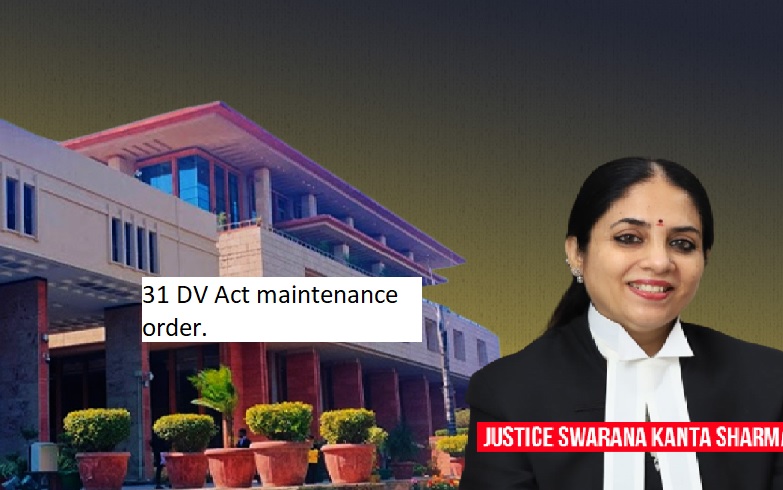


The Delhi High Court recently rendered a significant ruling concerning the interpretation and application of Section 31 of the Protection of Women from Domestic Violence Act, 2005 (DV Act). The court held that an individual cannot be summoned under Section 31 for non-compliance with an order for payment of maintenance. This decision carries implications for the understanding of the Act's provisions and the legal actions that can be taken in cases of domestic violence.
Justice Swarana Kanta Sharma, in delivering the judgment, underscored the primary objective of the DV Act, which is to provide immediate and effective relief to victims of domestic violence. The focus, as per the justice's observations, is on issuing maintenance or interim maintenance orders to alleviate the suffering of victims promptly. Importantly, the court emphasized that the intention behind these measures is not to initiate criminal proceedings against the alleged aggressor immediately, leading to their imprisonment.
"The aim of the Act was, therefore, to provide for protection, rehabilitation and upliftment of victims of domestic violence, in contrast to sending the aggressor to prisons. In other words, the purpose behind enforcement of monetary orders would be to provide monetary sustenance to the victim, and not the incarceration of the aggressor," the court remarked.
Justice Sharma made these observations while quashing a summoning order that had been issued against a husband by a trial court under Section 31(1) of the Act for non-compliance with a monetary relief or interim maintenance order. The case originated from a complaint filed by the wife, who alleged that despite judicial orders granting her interim maintenance, the husband failed to comply, warranting summoning under Section 31(1) of the DV Act and Section 498A of the Indian Penal Code (IPC).
In disposing of the plea, the court clarified that non-compliance with monetary relief, including orders for maintenance or interim maintenance, should be addressed according to the provisions of Section 20(6) of the Act and the Code of Criminal Procedure (CrPC). The court emphasized that the enforcement of such orders falls within the statutory framework of the DV Act and its rules.
"Thus, in view of the statutory framework of PWDV Act and Rules, the order granting maintenance or interim maintenance under Section 20 of PWDV as monetary relief to the aggrieved women will have to be enforced in the manner as provided under Section 20(6) of PWDV Act or otherwise as per provisions of Cr.P.C. including manner for enforcement of orders passed under Section 125 of Cr.P.C.," the court stated.
The ruling clarifies the legal landscape surrounding domestic violence cases, emphasizing the overarching objective of the DV Act to provide protection, rehabilitation, and financial support to victims. It signals a departure from an immediate resort to criminal proceedings, highlighting the need for a more comprehensive and victim-centric approach.
In the broader context of family law, this judgment underscores the importance of considering the nuanced objectives of specific legal provisions. It also prompts a reconsideration of strategies in cases of non-compliance with maintenance orders, emphasizing the need to follow the prescribed statutory framework rather than opting for criminal proceedings as an initial recourse.
The legal community is likely to scrutinize this ruling for its potential impact on future cases involving domestic violence and maintenance orders. It adds clarity to the interpretation of Section 31 of the DV Act and sets a precedent for prioritizing victim relief and rehabilitation over immediate punitive measures against the alleged aggressor.
In conclusion, the Delhi High Court's decision provides valuable insights into the nuanced application of the DV Act, emphasizing a victim-centric approach. It serves as a reminder that legal interpretations evolve, and a thorough understanding of the statutory framework is crucial for practitioners and stakeholders involved in family law and domestic violence cases. The ruling reiterates the importance of balancing the interests of justice with the overarching goal of protecting and rehabilitating victims of domestic violence.
TAGS: Aggressor Monetary sustenance Rehabilitation Upliftment of victims Summoning order Trial court